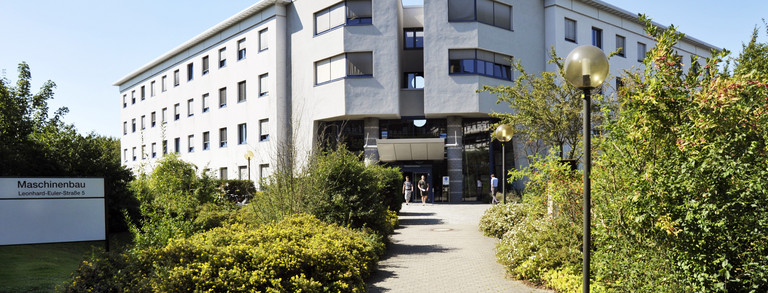Exoskeleton workshop at the IPS in cooperation with NIRO
- 2020_en

The Institute of Production Systems (IPS) supports NIRO with interesting topics from the field of industry 4.0. On February 17, 2020, the IPS invited to a workshop that took a closer look at possible fields of application for exoskeletons in production and logistics.
The Institute of Production Systems (IPS) supports NIRO with interesting topics from the field of industry 4.0. On February 17th, 2020, the IPS invited to a workshop that focused on possible fields of application for exoskeletons in production and logistics.
After a short presentation of the IPS and an introduction of the topic, trial and error was explicitly allowed: The approximately 20 participants from the construction and packaging industry as well as special machine construction, among others, were able to put on and test an exoskeleton themselves that afternoon. Many participants had already heard about exoskeletons, but were unaware of their concrete benefits. In the workshop the aim was to gain individual experiences by trying out and getting to know the technology.
Exoskeletons are worn on the outside of the body. The support frames act mechanically on the body and primarily relieve the human musculoskeletal system. Depending on the exoskeleton type, different parts of the body are relieved. They enable certain movements and are generally intended to facilitate or support body movements and reduce damage. This can primarily help when lifting heavy loads or improve work in ergonomically critical positions. Advantages are the prevention of injuries, reduced absenteeism, better working comfort or even increased productivity and quality.
The first test round, in which many participants tried on the exoskeleton "Paexo" from the Ottobock company, brought the first interesting reports of experience: Wearing the support frame was not perceived as unpleasant - at least for the short test period - and supported overhead work. In general, however, the range of possible applications is still limited and the right exoskeleton must be selected for the particular application. For special requirements, as described by some participants from their company practice, the systems are currently only limitedly suitable.
In addition, IPS presented a motion capture system that uses sophisticated sensor equipment to analyze motion sequences and record distances. The tracking results can be used for various purposes, for example in time management, work system design and ergonomics.
Afterwards the chances and risks of exoskeleton technology were discussed in small groups. Here, numerous application potentials are still waiting for a concrete implementation in industrial production or even in trade. In general, the demands on such supporting systems are very high and range from low weight to high wearing comfort in order to gain acceptance of the wearer. The easy and problem-free handling as well as the durability of the exoskeleton also plays an important role. Decisive for the application will be the resulting costs in consideration of the benefits.
Research activities planned by the IPS, such as the SyNExo research project, address these issues and will therefore be considered by some NGO companies.
If you are interested in exoscellets and their profitable use in production, please contact us, i.e. our colleagues Florian Hoffmann and Vanessa Weßkamp.
The IPS would like to thank NIRO and the participants for this very interesting workshop, which gave a current overview of the state of exoskeleton technology and showed possible fields of application in companies.


